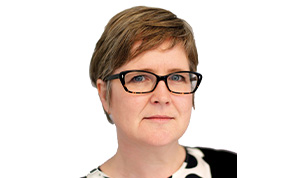Trusts fear rising energy costs
 The BMJ approached a number of trusts for their forecasts of future energy bills, and how they planned to mitigate those charges this winter.
The BMJ approached a number of trusts for their forecasts of future energy bills, and how they planned to mitigate those charges this winter.
Most trusts contacted by the journal are expecting combined gas and electricity bills to double at least, though one has budgeted for a 214% increase in electricity and gas costs in 2022/23 – around £27m more than 2021/22.
The trust is seeking to mitigate the additional costs by replacing halogen light bulbs with lower energy use LEDs and fitting combined heat and power systems.
In May, NHS England announced it would divert some of its central budget to support the health service with inflationary pressures that had arisen since planning assumptions were set in December 2021. In total it allocated £1.5bn, with £485m earmarked for rises in energy costs.
There is no cap on prices for non-domestic use, and costs are likely to rise even higher than the domestic cap.
Saffron Cordery (pictured), interim chief executive at NHS Providers, said trusts faced a difficult winter with costs rising rapidly, if the government does not intervene.
‘Trust leaders are worried about rising fuel bills and the impact of inflation, which is expected to spiral even further in the coming months. The government’s failure to fully fund the NHS pay award has meant that vital resources are now being diverted from planned developments for frontline care at a time of unprecedented operational pressure.
‘We are already seeing the knock-on effects of this for patient care with planned cuts to community diagnostics and digital innovations. But this could just be the tip of the iceberg.’
The NHS Confederation insisted the new prime minister, who will be elected by the Conservative Party on 5 September, must act quickly to head off the inflationary pressures faced by the health service. The top-up should be at least £4bn for this year, with additional allocation needed to cover rising prices in 2023, when wholesale gas prices are expected to be even higher.
Rory Deighton, senior acute lead at the NHS Confederation, added: ‘This isn’t an abstract problem, as the gap in funding from rising inflation will either have to be made up by fewer staff being employed, longer waiting times for care, or other areas of patient care being cut back.
‘The new prime minister must provide a top-up in this autumn’s budget or any emergency budget they hold to make up the shortfall. The NHS needs at least £4bn to make up for inflation during this year alone, and that is before we face a winter of even higher wholesale energy prices.
‘A failure to properly compensate the NHS for inflation will only heighten pressure on our health service as we move towards a winter that we know will be particularly challenging this year.'
Related content
The value masterclass shares examples of organisations and systems that have pursued a value-driven approach and the results they have achieved.
This webinar series offers colleagues of ICS organisations the opportunity to discuss common priorities, challenges, and successes within their field.